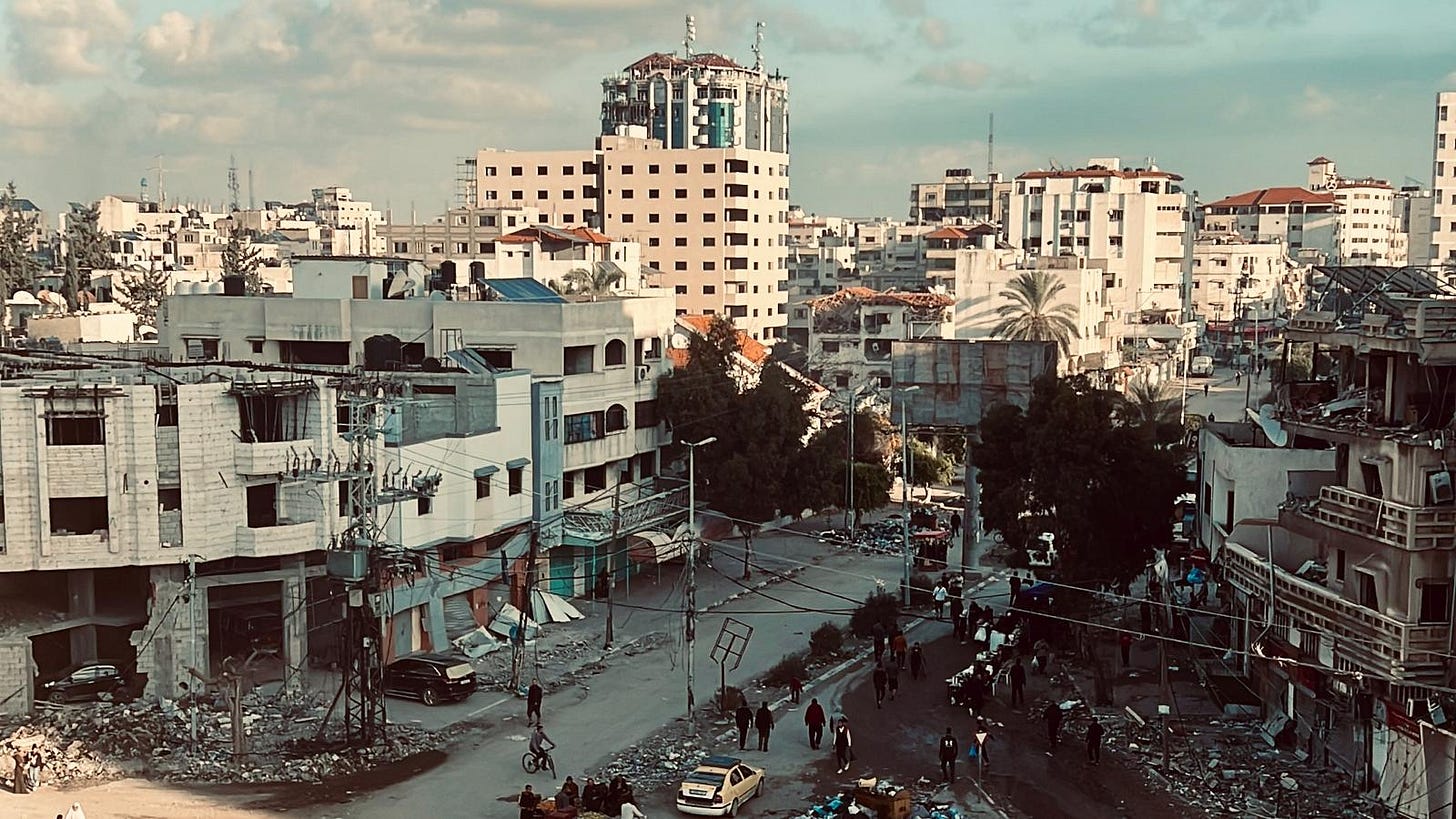I survived the war in Gaza, but even in exile, I remain part of its tragic reality
I survived, but Gaza is in my soul: One year after the war, I still carry home with me.

I remember writing about the 74th anniversary of the Nakba, and the 75th, and the 76th. I wrote about the pain and pride of my people—many of whom had been expelled from their homes and sent into what would become my homeland, Gaza.
Decades after that first expulsion, many things have changed, but one thing has remained the same: Israel’s determination to erase us from our own land. For 2 million people still trapped in Gaza, that has meant a year of genocide—of death, starvation, displacement, and the constant search for safe haven; for tens of thousands of others, like me and my family, it has meant a Nakba of our own—a desperate flight from Gaza and into exile.
For those of us who have been permitted a way out, surviving Gaza hasn’t made the war less painful. Our scars linger, not just in the memories of destruction, but in the daily struggle of trying to rebuild our lives, to find a sense of normalcy in the midst of chaos.
It is hard to describe what it feels like when your life as you knew it evaporates overnight—when you have to leave your home even though your home can never leave you. I can never forget my home—not just when it’s being blown up, but in the stories my grandparents told, in the memories passed down through generations, in the olive trees that stand as silent witnesses to our dispossession. The day my father was forced to leave Gaza under evacuation orders, he carried nothing but the keys in his pocket and the hope that, one day, he would return—just as his own father did over 70 years ago.
Though I am still in my 20s, I never imagined I would endure the same tragedy. Generations have come and gone, places have changed, but the reality of forced displacement remains. As we watch the news today, one question haunts us: Will we live to see the day when we can finally experience the right to return and celebrate the liberation of our homeland?
My earliest memories are of my grandmother’s stories, told in a voice heavy with the weight of generations. She spoke of a free Palestine, where the air was sweet with the scent of jasmine and the nights resonated with the music of the oud. Her stories weren’t just about a land; they were about a way of life, a deep sense of belonging that transcended the physical.
One year of relentless assaults has once again turned that land into blackened rubble.
It’s been one year, and we are still asking the world for the same thing over and over: to see us not just as victims, but as people with dreams and aspirations, with the right to live in peace and dignity. We are not asking for charity; we are demanding our rights, both in and outside of Palestine. The right to live in peace, to return to our homes, to walk our streets without fear.
Despite everything, we hold on to hope. Hope is a dangerous thing, fragile and easily shattered. But it is also resilient, growing in the most unlikely of places. Hope is in the eyes of the child who dreams of becoming a doctor, in the hands of the artist who paints a future free of fear, and in the voice of the mother who sings her baby to sleep under the hovering of warplanes. Hope is the lifeblood of Gaza, coursing through the veins of a people who refuse to be broken.
Writing, in these times, is also hope. It feels like an act of birth. To write is to remember, to hold on to the threads of our identity even in exile, and to declare that we are still here.
Those of us in exile are scattered across the globe but are connected by memory and longing. We carry our homeland in our hearts, a piece of Gaza in every step we take, every word we speak. Rebuilding our lives from nothing is an act of defiance, a refusal to let go of the dream of return. Our homes in exile are never truly home. Home is the smell of the sea, the taste of olives, the sound of prayers at dawn in Gaza’s suburbs of Shuja’iyya and Tal al-Hawa.
I left Gaza, but it has never left me. And so we will continue to write, to speak, to shout, until our voices are heard. We will continue to dream, to hope, to fight, until Gaza is free. We are not just fighting for ourselves, but for the future of our children, for the memory of our ancestors, for the soul of Palestine.
Gaza taught me hope. And I won’t let it down, even if I am in exile. In and outside of Gaza, we refuse to be silenced, to be erased. Three hundred and sixty-five days and counting, our sacrifice is far from over. But one thing is certain: As long as there is life in Gaza, there is hope. We will not give up. We will not surrender. And we will return.
***
I first published a version of this column in The Nation’s “‘I Have Watched My People Suffer in Ways That Would Shock the World’, Dispatches from Gaza on surviving a year of genocide.”


Your writing is exquisite. How can I support you?